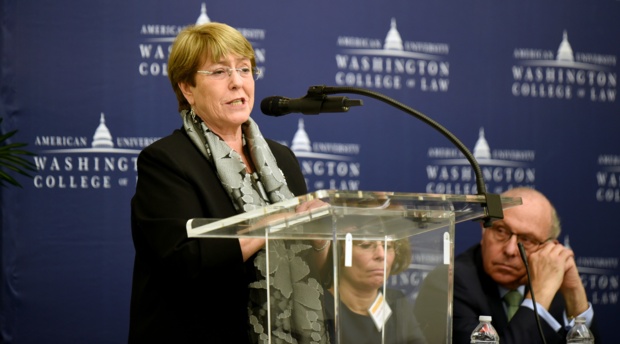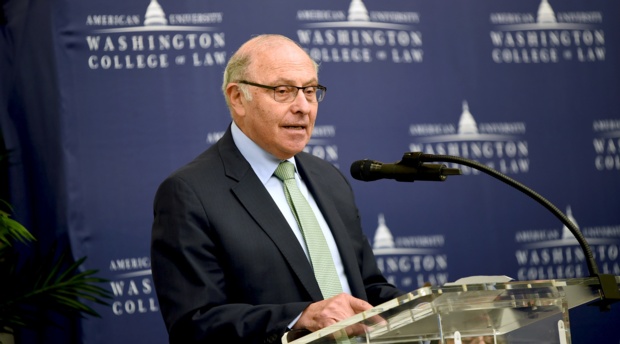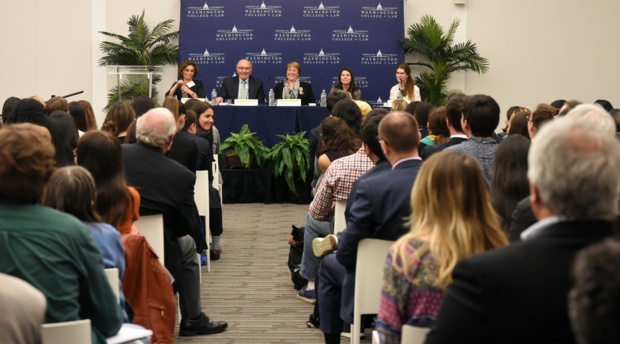AUWCL Welcomes UN High Commissioner for Human Rights Michelle Bachelet
April 15, 2019

On April 11, American University Washington College of Law welcomed United Nations High Commissioner for Human Rights Michelle Bachelet to campus.
Senior Associate Dean Brenda Smith welcomed attendees to Bachelet’s presentation, “Challenges to the Protection of Human Rights in the 21st Century and the Role of the United Nations,” which drew in more than 250 people from the extended AUWCL, human rights, and legal communities.
During his introduction of Bachelet, Professor and Dean Emeritus Claudio Grossman called her “a trailblazer,” as the first woman elected President of Chile from 2006 to 2010, and then again from 2014 to 2018. In 2011, Bachelet was named the first Director of UN Women, an organization dedicated to fighting for the rights of women and girls internationally. Bachelet also served as Chile’s and Latin America’s first female Defense Minister from 2002 to 2004. Prior to that, Bachelet served as Health Minister from 2000 to 2002.
Bachelet opened her presentation by thanking AUWCL and members of its distinguished faculty for a longstanding commitment to international human rights law.

“I want to salute the work you have done to elevate human rights standards and issues,” she said, including “torture, sexual violence, and accountability for systematic violations.”
Bachelet said we currently live in a “paradox” – where global economy and changing demographics are bringing us closer together, but policy makers and the international community are more fragmented.
“Many leaders of states seem to be less committed to working together for the common good. They are turning away from shared principals, and solutions to shared problems – and this situation is leading to increasing suffering and chaos,” Bachelet said. “Justice brings peace. It doesn’t eliminate disagreements, but when people have confidence in an impartial and independent structure of law and norms, they know they will be able to resolve their disputes peacefully.”
Bachelet went on to discuss various human rights issues, including topics of violent conflict and war, women’s rights, and the heightened presence of race- and religious-based hate.
“Many of us are concerned with the global rise of hatred being directed at members of racial, ethnic, or religious groups, as well as against foreigners and other minorities,” she said. “In many countries, what used to be extremist ideas have now entered the political mainstream in tandem with a nativist, exclusionary world view.”

She also acknowledged the environmental and societal impacts of climate change through a human rights lens – an area of concern Bachelet said she is committed to as commissioner.
“Climate change is driving displacement by destroying people’s ability to earn a decent livelihood in the place that they were born,” Bachelet explained. “From increased poverty and food insecurity, to growing environmental damage, there is a clear and increasingly present threat to human dignity.”
The event was co-sponsored by the International Law Student Association, the Academy on Human Rights and Humanitarian Law, the Center for Human Rights and Humanitarian Law, and the American University International Law Review.